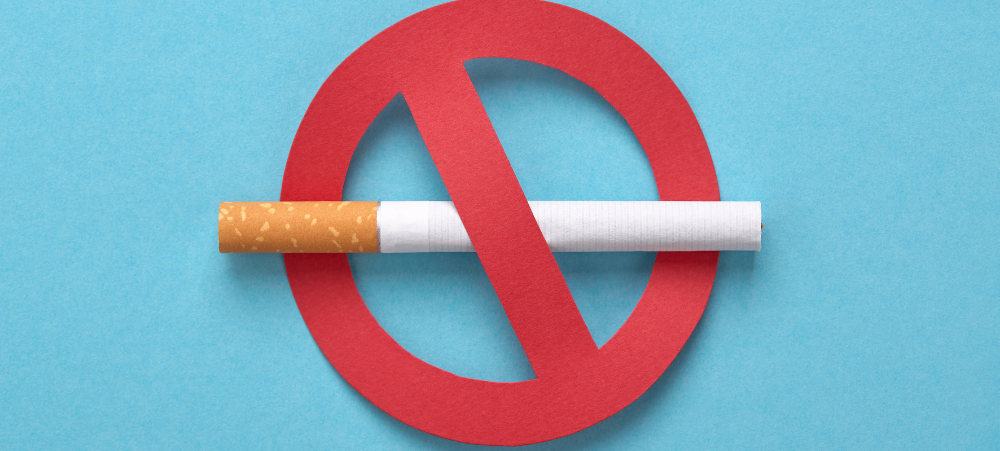‘A billion deaths can be prevented this century, if governments act now to reduce tobacco use’. [World Health Organization]
Ahead of World No-Tobacco Day, commemorated annually on 31 May, the World Health Organization (WHO) is calling on governments to adopt policies that shield children from exposure to harmful tobacco products.
This year’s theme: ‘Protecting children from tobacco industry interference’, gives young people across the world, the platform to urge the tobacco industry to stop targeting them with products that are harmful to their health.
Statistics indicate that smoking among young people remains high. More than 38 million youngsters, aged between 13 and 15, are using some form of tobacco. Tobacco use affects all communities. It has direct harmful effects on health, but also impacts a country’s economy and environment and hinders their achievement of Sustainable Development Goals*.
‘Lifestyle-related diseases stemming from tobacco, alcohol and obesity, have overtaken infectious diseases and become one of the biggest killers,’ says Dr Themba Hadebe, Clinical Executive of Bonitas Medical Fund. ‘We often think tobacco use is no longer an issue. And, while the number of people smoking in South Africa has fallen by over 20% over the past two decades, the reality is that we still have a long way to go.’
One of the reasons for the decline in cigarette smokers is that South Africa is part of The WHO Framework Convention on Tobacco Control (FCTC). The FCTC is an international treaty which requires governments to, amongst other things, raise tobacco taxes, ban tobacco advertising and make public places smoke-free. It also urges governments to protect their policies from tobacco industry interference and to ensure children grow up free from commercial pressure to start smoking.
South Africa was one of the first country signatories to the FCTC on 16 June 2003, the treaty was enforced on 18 July 2005.
The facts are clear: Tobacco is harmful to your health. It was responsible for a million deaths during the 20th century and tobacco use could kill 1 billion during the 21st century.
‘We encourage you to take action now,’ says Dr Hadebe. ‘If you are a smoker, quit and if you’re a non-smoker, help a friend or family member to quit.’
He says there are a number of support groups available. ‘At Bonitas we offer our members a fully supported stop smoking programme through GoSmokeFree. The programme, available through participating pharmacies, begins with a pre-quit assessment and then one-on-one sessions with a nursing sister and trained advisors to develop an individual plan to stop smoking.
‘When you quit smoking, good things start to happen,’ says Dr Hadebe, ‘you can feel and see almost immediate improvements to your health.’
The health benefits
Not only can you save up to R1 000 a month when you quit your 20-a-day habit, but you will enjoy the following health benefits:
After 20 mins: Your blood pressure and pulse rate slows
After 8 hours: Your nicotine levels reduce by half and oxygen levels return to normal
24 hours: Carbon monoxide leaves your body and lungs start to clear mucus and smoking debris
2-3 days: Your sense of smell and taste is enhanced
72 hours: Breathing is much easier and energy levels will increase
3+ months: Your skin starts to look younger and your teeth whiter
5 years: Heart attack risk falls to half that of a smoker
10 years: Your risk of lung cancer falls to half that of a smoker and heart disease risk to the same as someone who has never smoked
It’s never too late to quit and it’s easier to stop smoking with the right support. Try the following:
- List the reasons you want to quit
- Set a date to give up smoking
- Tell people you are quitting
- Use stop smoking aids
- Join a free support group (even on Facebook) for support and advice
- Have a plan for when you are tempted to smoke (a distraction)
- List your smoking triggers and how to avoid them
- Keep cravings at bay by keeping busy
- Exercise away the urge to smoke
- Throw away all your cigarettes before your start
Remember: Never give up giving up!
For 2025 we have a renewed Female Health Programme:In collaboration with CareWorks, it’s accessible to all female members aged 18 and above, with an emphasis on preventative care and early detection of female-specific health issues. In addition, we have an enhanced Maternity Programme to support expecting mothers. This includes early identification of and weekly engagement for high-risk pregnancies, post-childbirth care and associated mental health follow-up calls for new mums, given the prevalence of pre and postnatal depression. Also, milestone reminders for children under 3 and cover for antenatal vitamins through savings, day-to-day benefits or the Benefit Booster
Bonitas Medical Fund
0860 002 108
View Website: www.bonitas.co.za
- Putting together your birth plan - December 23, 2025
- Breastfeeding tips - December 15, 2025
- Mental health matters during the festive season: Let’s normalise getting help - December 11, 2025





